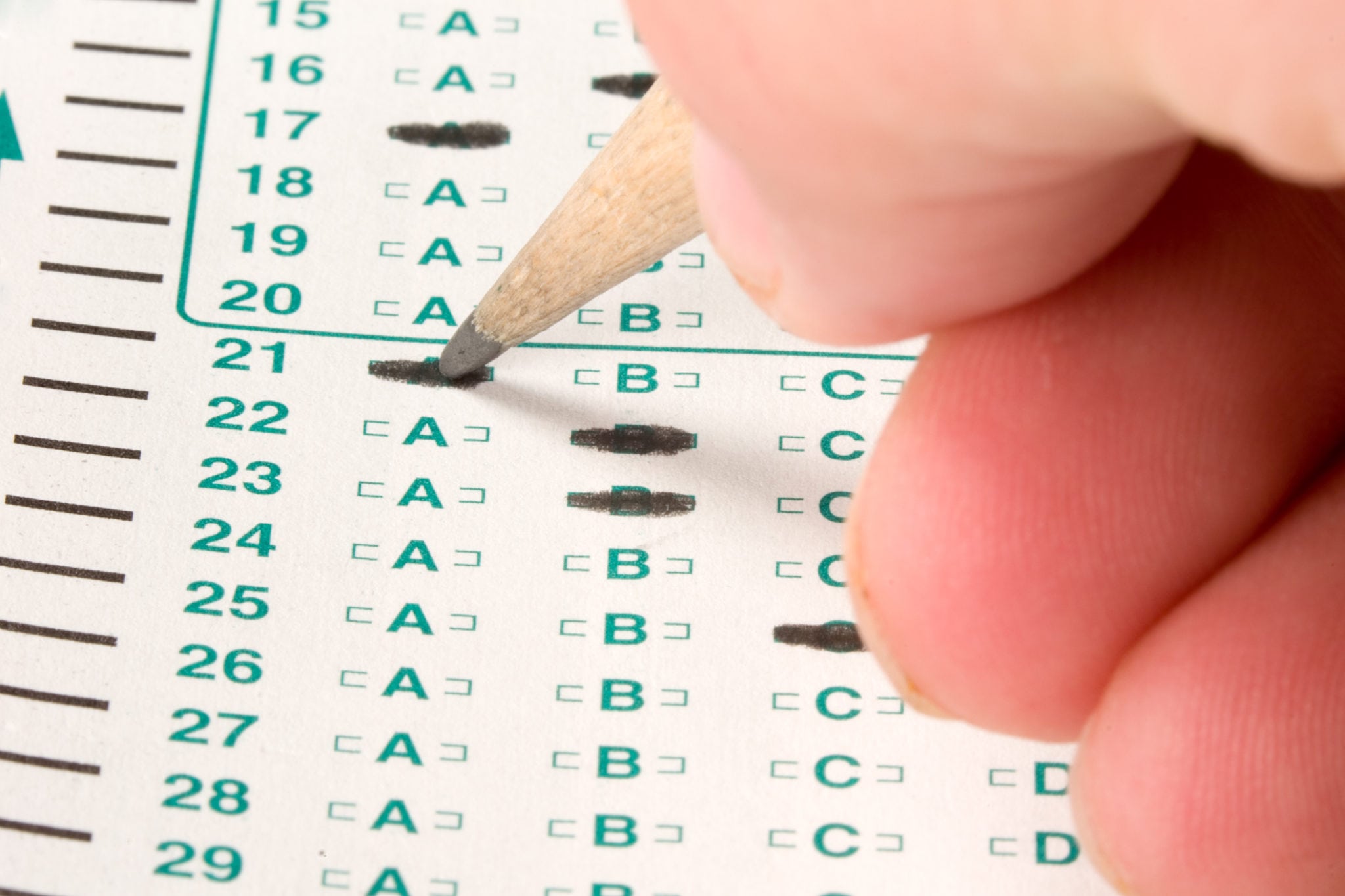No type of standardized test, including the LSAT, can predict who will become a skilled, competent, and ethical attorney.
During the law school admissions process, most institutions look at an applicant’s Law School Admissions Test (LSAT) scores. The LSAT is type kind of exam that assesses an individual’s abilities to critically read and think analytically, which are skills expected of all law school students.
In spite of all the LSAT prep that takes place year-round, the American Bar Association (ABA), which accredits more than 200 law schools in the United States, is taking the first step to eliminating the requirement that law schools use the LSAT as part of the admissions process.
Unfortunately, most law schools will continue to use a standardized test – whether it’s the LSAT or the GRE – to measure an applicant’s aptitude for success.
Here’s why we disagree with that approach.
1. Using LSAT Scores is a Missed Chance for Self-Reflection
The ABA and the law schools who continue to rely on these exams are missing an opportunity to evaluate whether current admission practices are positively contributing to the legal profession.
Law schools are one of the gatekeepers to the profession and their admissions policies should reflect this function. No standardized test can predict who will become a skilled, competent, and ethical attorney.
2. The LSAT Cannot Identify Professional Potential
Like most standardized tests, the LSAT is used to predict academic success in law school. Unsurprisingly, researchers have found a correlation between LSAT scores and first-year law school GPA.
The LSAT is a three-hour timed test that measures reading comprehension along with logical and analytical reasoning. Most first-year law school exams are timed three-hour exams that measure reading comprehension and analytical reasoning. So LSAT scores appear to simply measure cognitive test-taking ability rewarded in the first year of law school (and often beyond).
However, the LSAT’s predictive value diminishes greatly when students are assessed through LSAT prep via practice tests and sample questions or in courses that focus on lawyering skills, such as client interviewing, oral arguments, or trial practice. It simply cannot predict who will become a competent lawyer.
3. LSAT Research Backs This Up
After a long-term research project, Marjorie Schultz and Sheldon Zedeck established 26 lawyering competencies, only 12 of which were correlated with LSAT score with 8 having a negative correlation. Likewise, the McCrate Report identified 10 skills and values essential for practitioners only two of which overlap with the LSAT exam, with only two correspondings with the LSAT. Another study looked at Michigan Law School alumni success and found there was no correlation between LSAT scores and post-graduate accomplishments.
The Institute for the Advancement of the American Legal System (IAAL) discovered that the number one trait new lawyers need to launch a successful career is character. Well over half of the 24,000 lawyers who responded to the survey identified characteristics like integrity, work ethic, resilience, and teamwork as the most necessary right out of law school. The LSAT does not measure any of these traits.
The Colleges of Law Approach
The Santa Barbara and Ventura Colleges of Law (COL) doesn’t require the LSAT or any standardized test as part of our admissions process. Unlike the ABA, the State Bar of California’s Committee of Bar Examiners (CBE), which accredits COL, does not mandate schools use a standardized exam score for their admissions.
Instead, COL has chosen a holistic approach to our admissions process. For nearly 50 years, the COL mission has been to create opportunities for prospective students to attend law school. Our students are primarily working adults who have long delayed their dream to pursue a legal career.
While we look to previous academic performance, we also look to work history, search for indicators of characteristics like grit, determination, passion, and frequently require an in-person interview prior to acceptance.
We also have a rigorous curriculum with a grading system that alerts students early in the first year if they are unlikely to succeed. Moreover, because we are committed to affordability, a student isn’t saddled with a triple-digit debt if they discover that the working in law isn’t the right fit for them.
Focus on the Test That Really Matters
COL also provides students with a multitude of tools to help them prepare for the California bar exam.
- Our curriculum includes every subject tested on the California bar exam.
- Students take mixed subject closed-book exams starting in the first year.
- Like the bar exam, every law school exam includes multiple choice questions.
- Students take a bar diagnostic exam in their penultimate year that alerts them to their strengths and weaknesses.
- Students are required to take a Bar Studies course in their final semester.
- Our curriculum includes an elective course focused on Multistate Performance Test (MPT) preparation.
- As part of their tuition, COL students have access to BARBRI for every bar-tested subject starting in their first year.
- As part of their tuition, graduates have access to the BARBRI bar preparation course used by an overwhelming majority of former law school graduates.
COL recognizes that effective lawyering requires a blend of skills and character traits that cannot be easily measured in a standardized test. The ABA has taken the first step in encouraging the law schools it accredits to reevaluate their admission policies but it’s uncertain how many law schools will actually do so. If they don’t, they have missed the opportunity to truly expand access to legal education and to the profession.
—
Interested in pursuing your J.D.? Explore our Traditional J.D. Program or our Hybrid J.D. Program. You can also request more information by filling out the form below.

